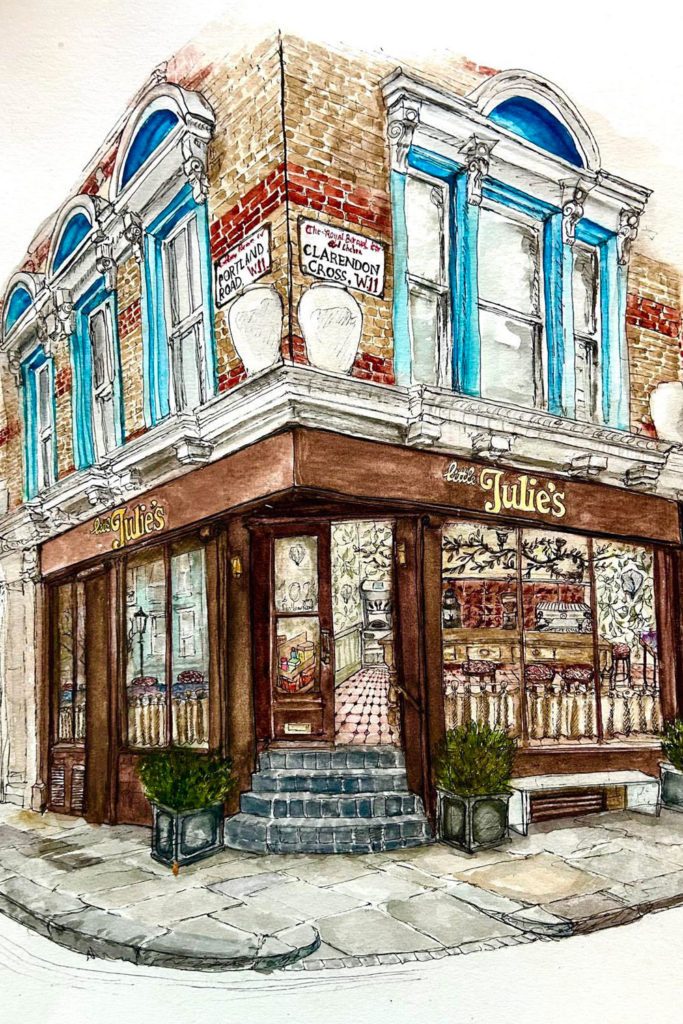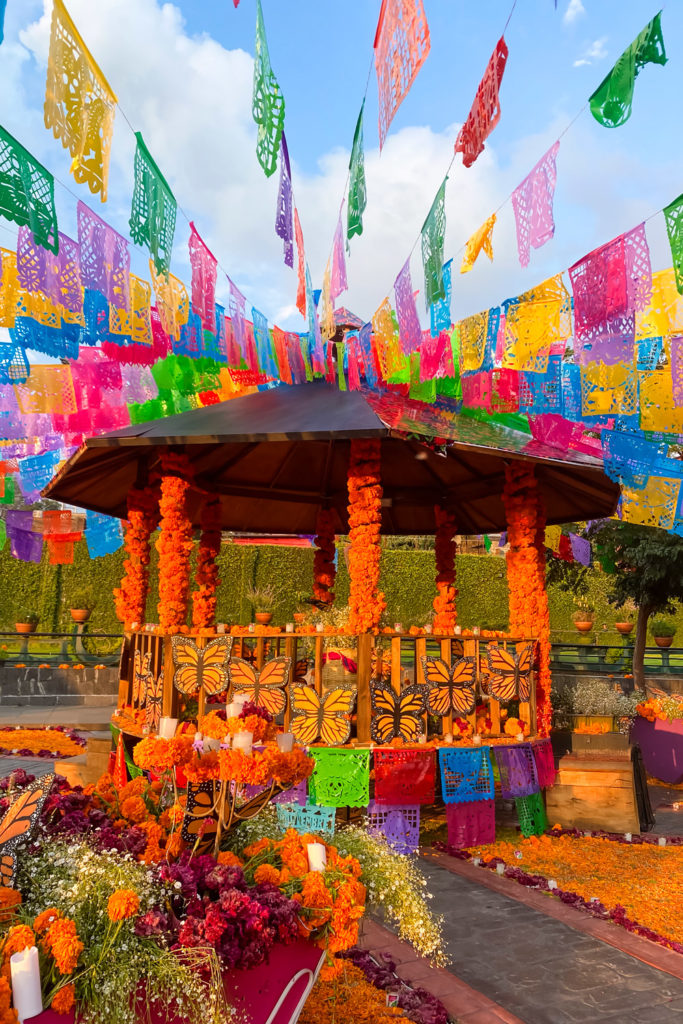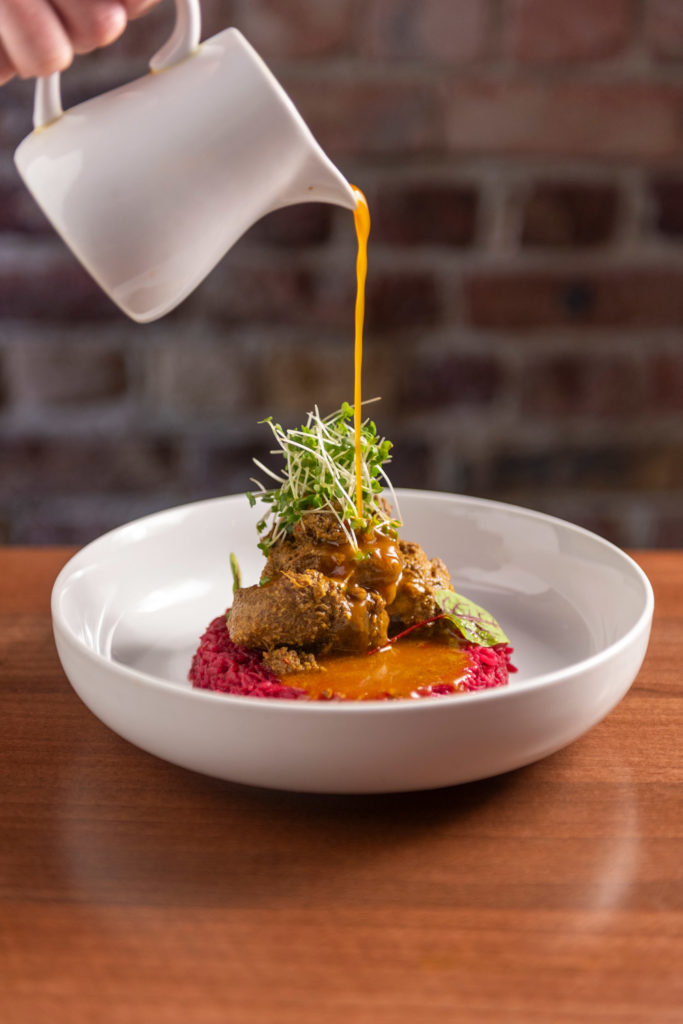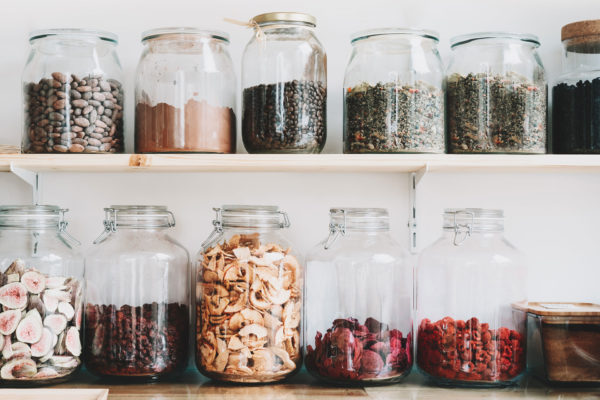How To Eat Meat (Right)
By
2 years ago
A guide to sustainable meat
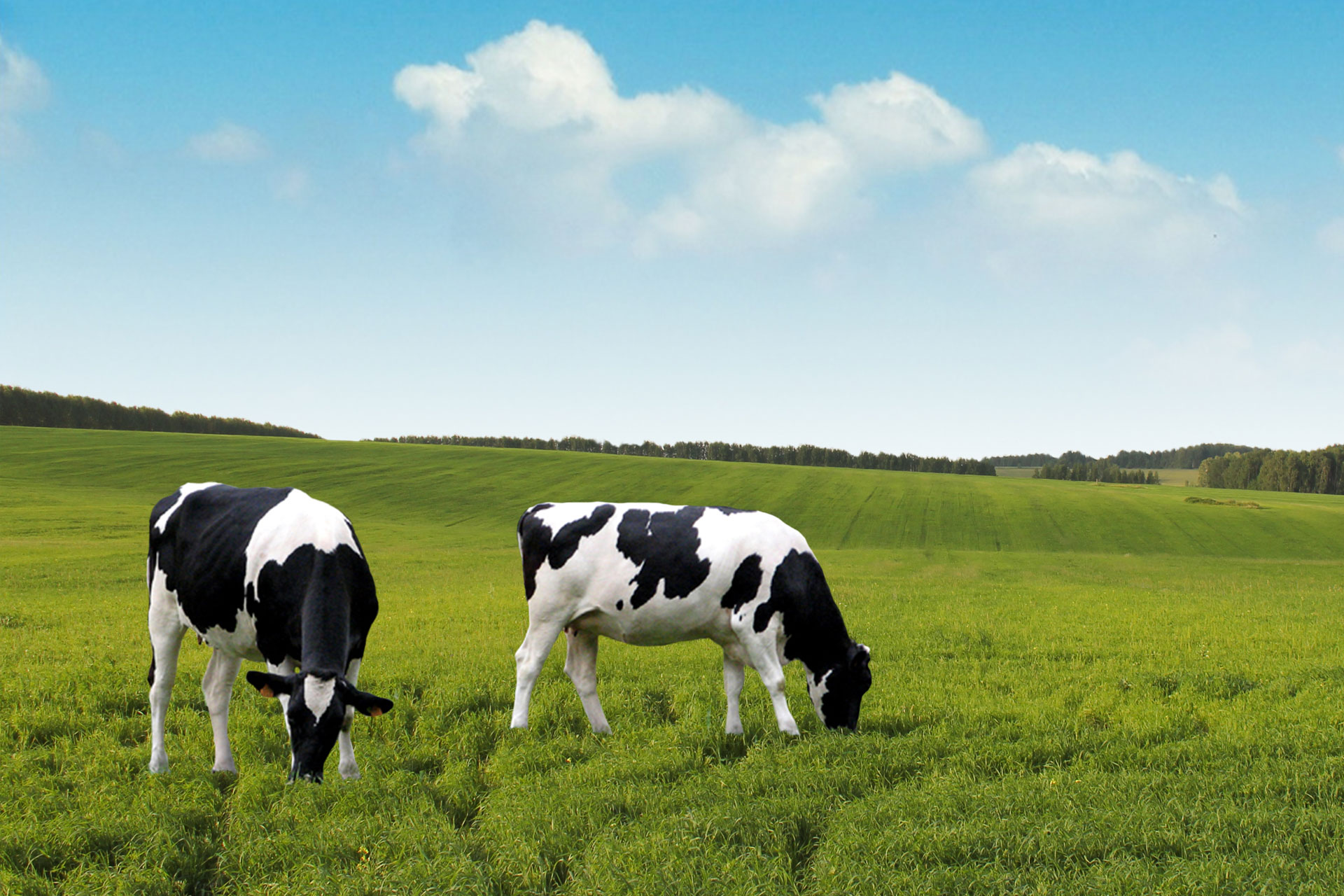
Over the past decade, attitudes towards meat have changed dramatically. This is, in part, due to increasing research surrounding its environmental impact: it’s undeniable that industrial meat farming has a significant effect on deforestation and climate change. Concerns surrounding animal welfare, too, are constantly growing, with veganism at an all-time high. Yet the demand for meat isn’t going away. According to Daylesford, it currently stands at 335 million tons a year globally, a figure which is expected to rise to 455 million by 2050. This begs the question: is there a sustainable solution to eating meat? Here we speak to chefs, farmers and sustainable food experts about how to have an eco-friendlier approach to meat consumption.
How To Eat Meat Sustainably
Eat British meat
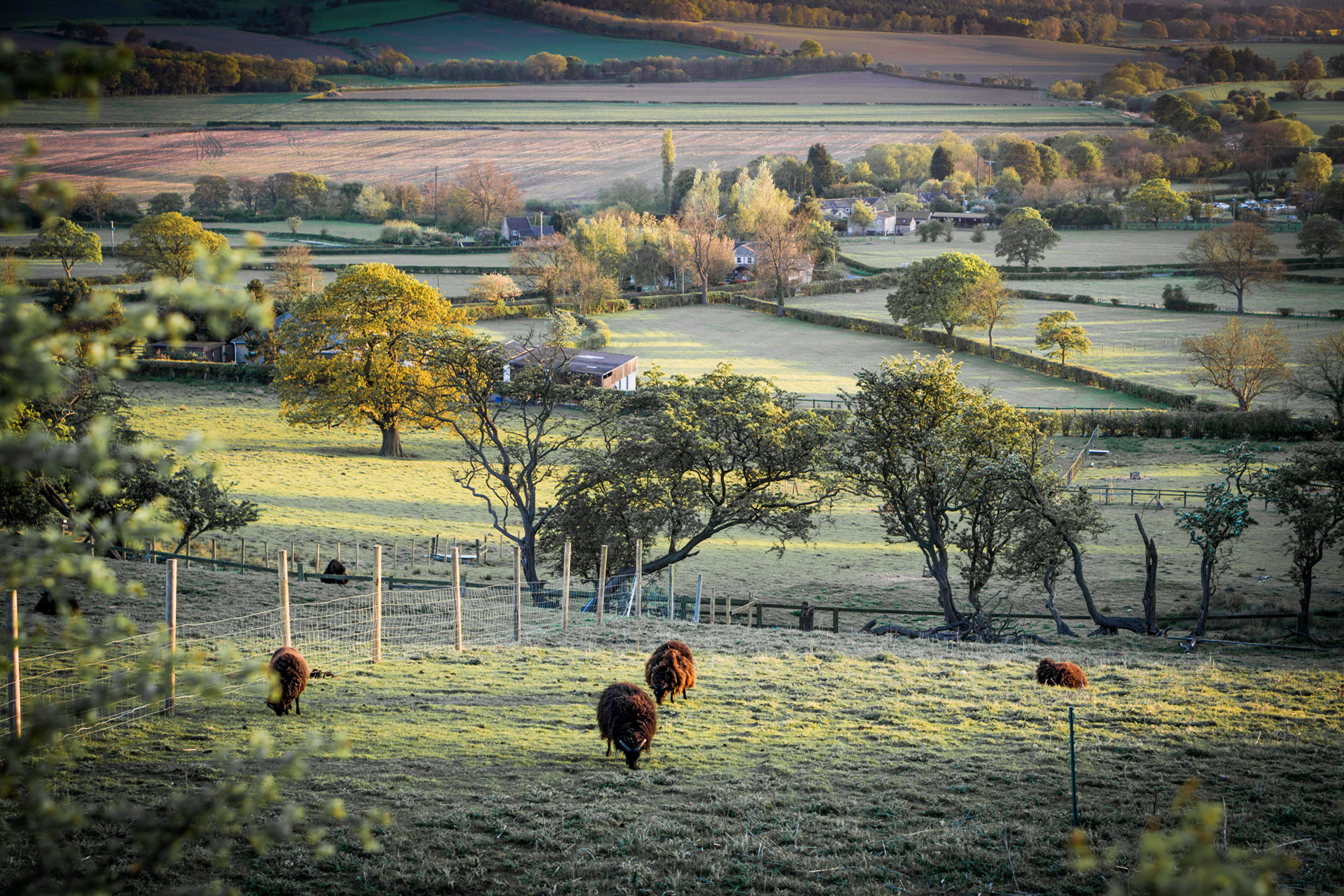
Unsplash
Eating local is always better for the environment, and the meat world is no different – particularly for us, as British farmers are leading the way in sustainable food production. According to the Government’s Committee on Climate Change, greenhouse gas emissions from UK beef are about half the global average – and by 2040, British farmers are hoping to reach net zero emissions.
British livestock farming is also associated with having some of the highest animal welfare standards in the world, James Mansfield, co-founder of sustainable meat company field&flower, tells us. ‘Farming with these principles costs more money and therefore carries a small premium to the customer – but it’s a premium worth paying for as producing food on our own soils will become increasingly important. Farmers have been preserving and managing the marginal grasslands in the UK for centuries using livestock. We’re producing some of the best meat in the world and it’s become easier to access: at the farm gate, farm shops and online.’
There are also examples of British grazing lands providing vital habitats and food sources for at-risk wildlife species. The Large Blue Butterfly, for instance, breeds in warm and well-drained grassland – and grazing livestock helps produce a suitable habitat.
Finally, while the EU has similar standards to Britain when it comes to animal welfare, transport can be stressful for animals. All in all, it’s best to eat meat that comes from close to home – so look out for country of origin on labels.
Pick the right producers
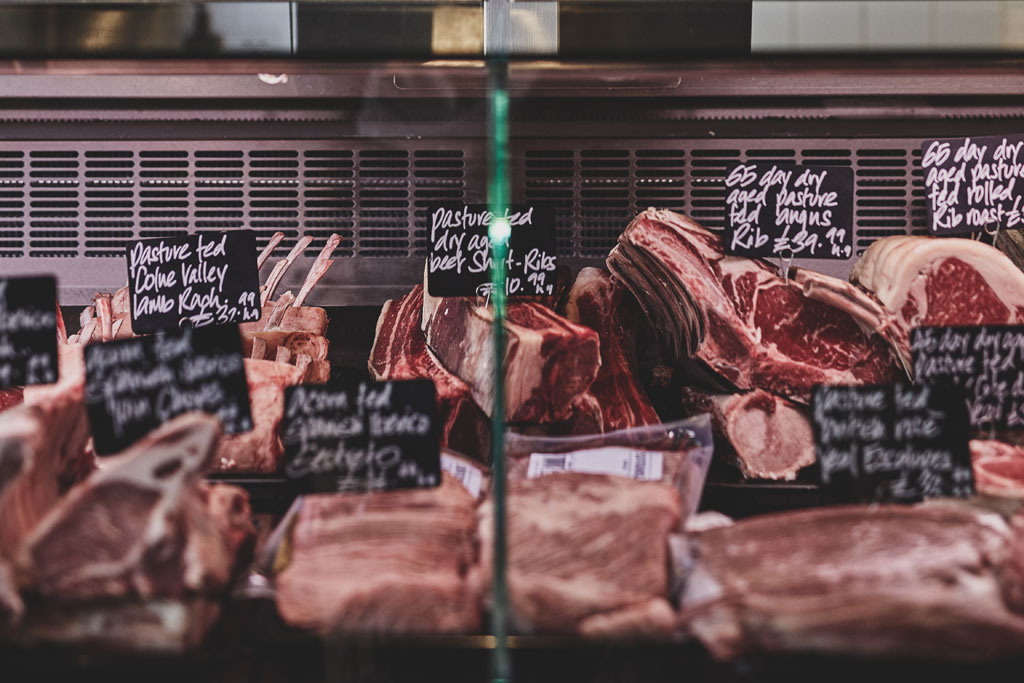
Around the world – and within Britain – there are huge discrepancies between farming methods. It’s important to consider where your meat is coming from and to buy from the right producers. As Jane Parker, board member of the Sustainable Food Trust and owner of Fir Farm in the Cotswolds, explains: ‘At the Sustainable Food Trust we believe that livestock production receives a lot of criticism, yet often there is a failure to differentiate between livestock that are part of the problem (primarily intensively reared, grain-fed) and high welfare livestock systems that can be a vital part of the solution: restoring ecosystems, maintaining soil fertility, producing food from marginal land and providing important nutritional benefits.’
We should be choosing pasture-raised, grass-fed meat instead of intensively farmed, mass produced meat. Labels to look out for include:
- The RSPCA Rest Assured symbol, which is run by the welfare charity and ensures animals are kept in the best possible conditions.
- Pasture for Life is a new certification scheme that labels lamb, beef and dairy which have been raised on a pasture-based system – meaning they have been kept outside throughout their lives and not fed any manufactured feed.
- ‘Outdoor bred’ means animals are born outdoors, but brought inside for growing, while ‘outdoor reared’ means they spend around half their lives outdoors. ‘Free range’ is the best option, as it means the animals have spent all their lives outdoors. However, Compassion in World Farming stresses that all the systems can be humane – even indoor farming, as long as the animals are kept on plenty of straw.
- Organic meat is a legally defined standard, operating to the very highest levels of animal welfare. Look out for the Soil Association organic accreditation mark – or visit the Soil Association website to find organic producers in your local area.
Consider the type of meat you’re eating
Different types of animals have different effects on the environment. Cows, for instance, get a particularly bad rep as they emit a high amount of greenhouse gases – almost a third of all emissions from agriculture, some studies show. Wild game meat, on the other hand, is shot as part of managing the landscape for conservation purposes, like planting trees. Some argue that eating British venison is actually good for trees, as deer destroy large tracts of farmland, particularly in the Scottish Highlands.
There’s also a movement to prioritise eating rare breeds, which tend to live longer and be kept outside as they’re not bred for intensive purposes. The Rare Breeds Survival Trust is a charity dedicated to preserving native farm livestock and preventing them from becoming extinct – you can see their watchlist here. If people eat these animals, they’ll continue to be farmed. Look out for them at farmers’ markets.
Embrace nose-to-tail dining
As well as choosing rare breeds, look for unusual cuts of meat – you’ll be able to find these at specialist butchers. ‘One hugely important part of eating meat sustainably is around carcass balance, and eating all of the animal – balancing this is hard, but the more adventurous you are with your selection of cuts, the more you help eat meat sustainably,’ says John Pallagi, founder of Farmison & Co. ‘So rather than a fillet steak, why not try bavette? The bavette is the butcher’s best kept secret – seriously flavoursome and great value.’
Sophie Cumber a butcher at Butchery at Bowhouse, adds: ‘Part of the reason I moved to Fife was the connection between farm to butchery at Balcaskie Estate. The beef is selected by Farm Manager Sam Parson and I from the organic heritage breed herd, which is fed on a grass only diet for regenerative farming which improves soil health and the environment. I use a nose to tail approach with butchery as it is more environmentally friendly because all cuts of meat get used without creating waste for landfill. By working with the whole animal I know that every beast is being used to its full potential.’
Reduce meat consumption
For some people, going fully vegan is the solution. But for those who don’t want to remove meat from their diet completely, simply cutting down will make a difference. In a 2019 paper published in journal BioScience, a global team of experts implored us all to ‘eat mostly plants and consume fewer animal products’ to help reduce emissions of methane and other greenhouse gases. Some of the world’s top scientists are suggesting we cut our consumption by around 70 percent. Conservation charity WWF, meanwhile, has said British farmers must reduce their production of meat by a third in the next 10 years in order to tackle the climate crisis.
Learn to cook
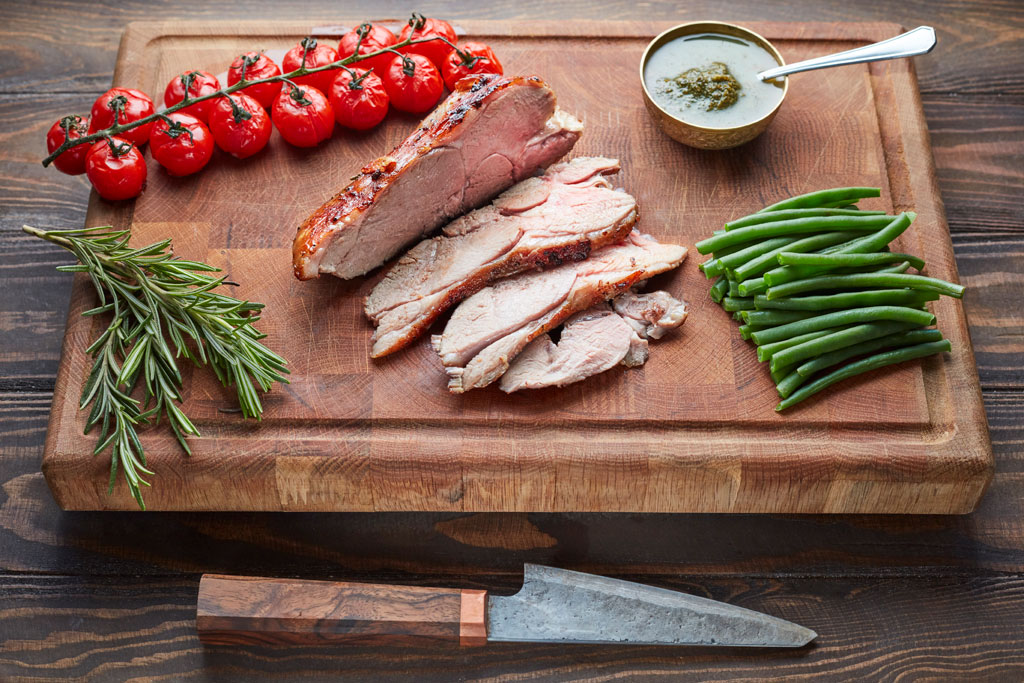
‘For personal and planetary health, we should eat less meat – so enjoy the best when you do,’ says Phil Howard, chef and co-owner of Elystan Street. His top tips for cooking meat are:
- Prime cuts like steaks need brief cooking. Seal and caramelise hard, season generously, cook briefly and allow the meat to rest for as long as it took to cook.
- Large cuts to roast need heavy seasoning – and these also need to rest once cooked. No juices should flow from well rested meat once carved.
- Tougher, cheaper cuts need a long, slow cook. Take it easy on the seasoning, and if possible cook them the day before as they always taste better the following day.
- Buy a probe or cooking thermometer – it’s the only way to really know when a roast is cooked to perfection.
Suppliers to buy from
This is not an exhaustive list, but here are some of the UK’s best sustainable and ethical suppliers. You can find out more about the individual producers here.
- Coombe Farm Organic
- The Ethical Butcher
- Farmison & Co
- Field&flower
- Daylesford
- Lake District Farmers
- HG Walter
- Fir Farm
- Provenance Butcher
- Rare & Pasture
- The Dorset Meat Company
- The Rare Breed Meat Company
- The Ginger Pig
- Pipers Farm
- Abel & Cole

